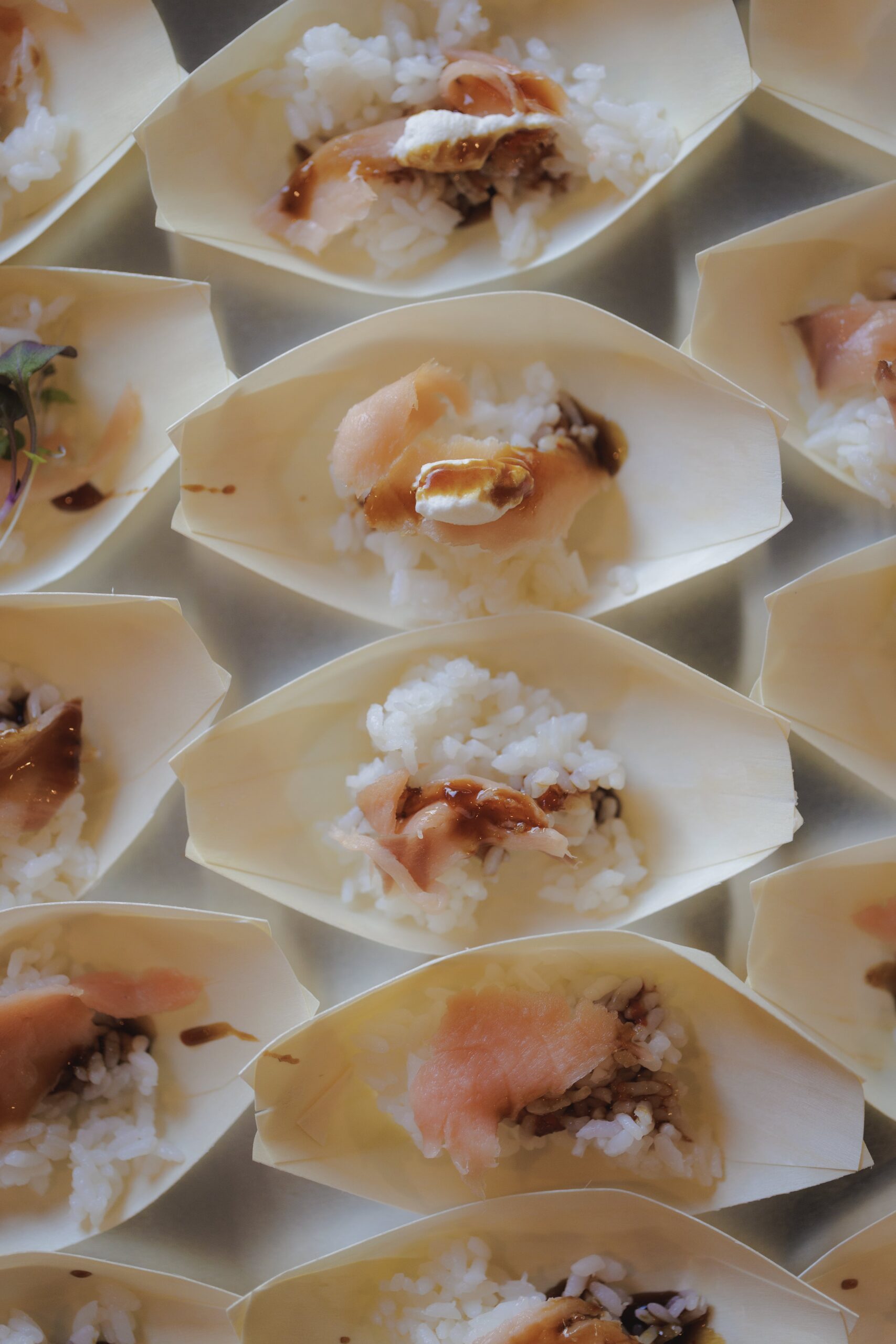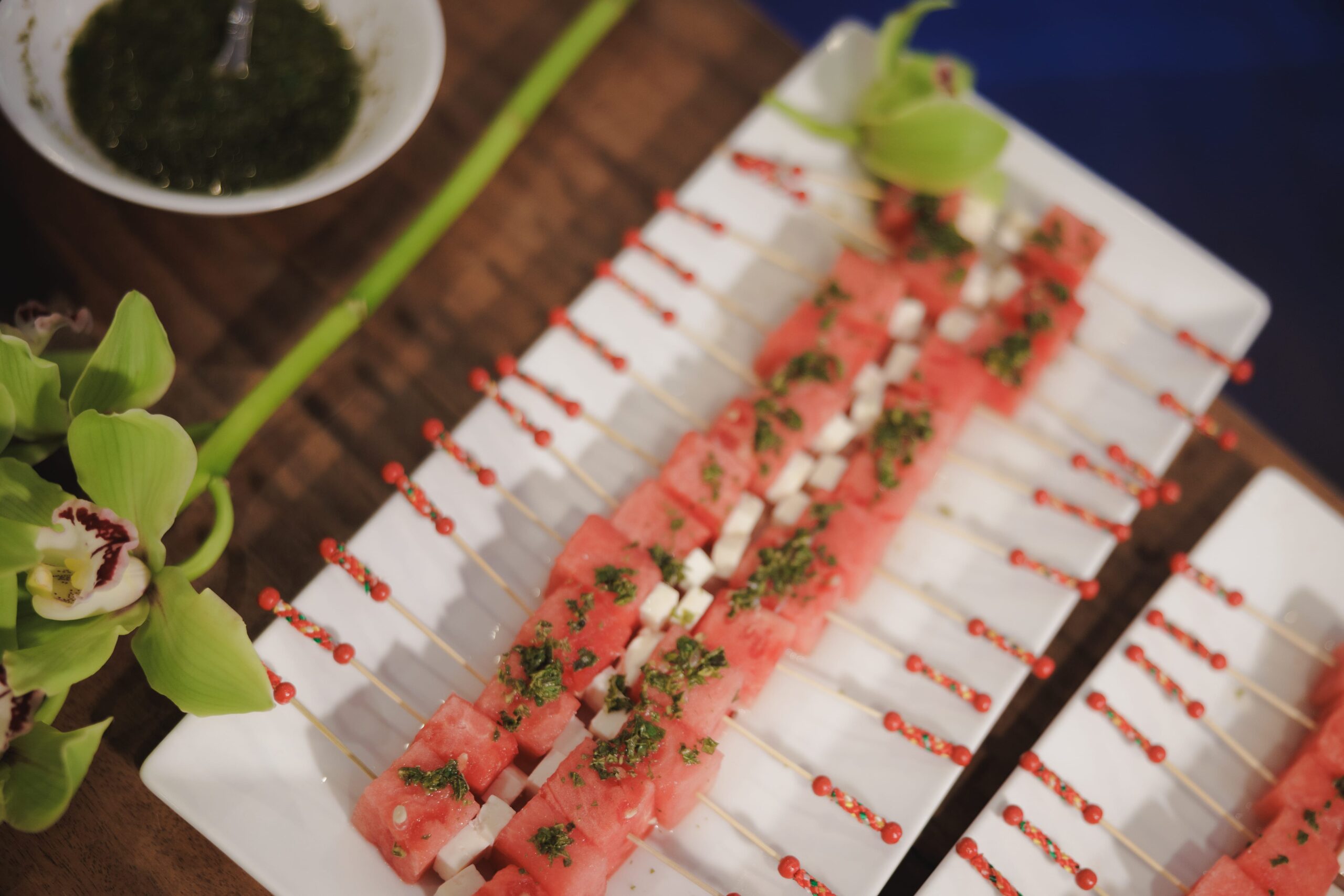Planning a wedding is a monumental task, requiring attention to every detail to ensure a memorable and joyous celebration. For Jewish weddings, this includes incorporating traditions, customs, and dietary laws that are integral to the ceremony and festivities. One of the most critical components of a Jewish wedding is the catering service. This guide explores everything you need to know about Jewish wedding catering services, providing insights into kosher laws, menu planning, popular dishes, and choosing the right caterer to make your wedding day unforgettable.
Understanding Kosher Laws
Before diving into the specifics of Jewish wedding catering, it’s essential to understand the basics of kosher dietary laws, known as kashrut. These laws dictate what foods can be consumed and how they should be prepared.
Key Kosher Principles:
- Separation of Meat and Dairy: Meat and dairy products cannot be cooked or consumed together. This means that a kosher kitchen will have separate utensils, cookware, and even preparation areas for meat and dairy.
- Permitted Animals: Only certain animals are considered kosher. For example, mammals must have cloven hooves and chew their cud (e.g., cows, sheep, goats). Fish must have fins and scales (e.g., salmon, tuna).
- Prohibition of Certain Foods: Certain foods, such as pork and shellfish, are not permitted.
- Kosher Slaughter: Animals must be slaughtered in a specific, humane way, known as shechita, by a trained individual called a shochet.
- Inspection and Certification: Kosher food must be inspected and certified by a rabbi or kosher certification agency to ensure compliance with kashrut laws.

Planning a Kosher Menu
When planning a kosher menu for a Jewish wedding, it’s important to work with a caterer experienced in kosher catering. Here are some tips for creating a delicious and compliant menu:
Appetizers and Hors d’oeuvres
Start the celebration with a variety of kosher appetizers and hors d’oeuvres. Popular choices include:
- Gefilte Fish: A traditional Ashkenazi Jewish dish made from ground fish.
- Mini Latkes: Potato pancakes served with applesauce or sour cream.
- Stuffed Mushrooms: Filled with a mixture of breadcrumbs, herbs, and kosher sausage.
- Chopped Liver: Often served with crackers or rye bread.
Main Courses
The main course is the highlight of the meal and should reflect the couple’s tastes while adhering to kosher guidelines. Options might include:
- Brisket: A slow-cooked, tender beef dish that is a staple at many Jewish celebrations.
- Chicken Marbella: A flavorful dish with chicken marinated in a mixture of prunes, olives, capers, and herbs.
- Stuffed Cabbage Rolls: Cabbage leaves filled with a mixture of ground beef, rice, and spices, cooked in a sweet and tangy tomato sauce.
- Grilled Salmon: A lighter option that pairs well with various sides.

Side Dishes
Complement the main course with a variety of kosher side dishes, such as:
- Kugel: A baked casserole, often made with noodles or potatoes.
- Tzimmes: A sweet stew made from carrots, sweet potatoes, and dried fruits.
- Roasted Vegetables: Seasonal vegetables roasted to perfection.
- Matzo Ball Soup: A comforting chicken soup with matzo balls.
Desserts
End the meal on a sweet note with traditional Jewish desserts:
- Rugelach: Pastries filled with nuts, chocolate, or fruit preserves.
- Babka: A sweet, yeast cake with swirls of chocolate or cinnamon.
- Honey Cake: A moist cake flavored with honey and spices.
- Fruit Platters: Fresh, seasonal fruit for a lighter dessert option.
Choosing the Right Caterer
Selecting the right caterer for your Jewish wedding is crucial to ensure a seamless and enjoyable experience. Here are some tips for choosing a caterer:
Experience and Reputation
Look for a caterer with experience in kosher catering and a good reputation within the Jewish community. Ask for references and read reviews to get a sense of their reliability and quality.
Kosher Certification
Ensure the caterer has proper kosher certification from a recognized authority. This guarantees that all food preparation complies with kashrut laws.
Menu Customization
Choose a caterer willing to work with you to customize the menu according to your preferences and dietary restrictions. They should be able to provide a variety of options and accommodate any special requests.
Tasting Sessions
Arrange for a tasting session to sample the dishes you’re considering for your wedding. This allows you to assess the quality and taste of the food and make any necessary adjustments.
Professionalism and Service
The caterer should demonstrate professionalism and excellent customer service. They should be responsive to your inquiries, provide clear contracts, and offer comprehensive services, including set-up, serving, and clean-up.
Additional Catering Services
In addition to food preparation, many kosher caterers offer additional services to enhance your wedding experience:
Bar Services
If you plan to serve alcohol at your wedding, ensure the caterer provides kosher wine and spirits. They may also offer bartending services to create custom cocktails and manage the bar.
Rentals and Decor
Some caterers provide rentals for tables, chairs, linens, and tableware. They may also offer decor services to help create a cohesive and beautiful atmosphere.
Event Coordination
Experienced caterers often have event coordinators on staff to assist with the logistics of your wedding day. They can help with scheduling, vendor coordination, and ensuring everything runs smoothly.

Popular Jewish Wedding Traditions
in Jewish Wedding Catering Services, Understanding Jewish wedding traditions can help you plan a catering service that aligns with these customs:
Chuppah
The wedding ceremony takes place under a chuppah, a canopy that symbolizes the home the couple will build together. The caterer may need to coordinate with the venue to ensure the chuppah is properly set up.
Kiddushin and Sheva Brachot
During the ceremony, the couple drinks wine as part of the kiddushin (betrothal) and sheva brachot (seven blessings). Ensure the caterer provides kosher wine for these rituals.
Breaking of the Glass
At the end of the ceremony, the groom traditionally breaks a glass underfoot, symbolizing the destruction of the Temple in Jerusalem and the fragility of life. The caterer can help coordinate the timing and logistics of this moment.
Jewish wedding catering services play a vital role in creating a memorable and meaningful celebration. By understanding kosher laws, planning a thoughtful menu, choosing the right caterer, and incorporating Jewish traditions, you can ensure your wedding day is a joyous and seamless event. With the right preparation and attention to detail, your Jewish wedding will be a beautiful and unforgettable occasion for you and your guests.





